From Syria to Sweden: Eiad´s perilous voyage across the Mediterranean
Eiad’s wife did not want him to embark on the perilous journey across the Mediterranean Sea to safety in Europe, but Eiad believed it was their only option. They had tried to build a new life in Egypt, but after two years in the country, Eiad realized he would not be able to provide a good future for his young children there. “Life wasn’t very good in Egypt”, he explains. In spite of his wife’s protests, Eiad decided to risk his life in a rickety boat sailing from Egypt to Italy. His wife and children returned to Damascus. “I was more worried about the kids”, he says. “I thought that if my life will finish, it will finish anyway – in Egypt, in the sea, wherever.”
After one and a half months of searching, he made contact with a human smuggler. The price for getting to Europe: 2,500 dollars. “We went in a group so it would be cheaper. The safest way to travel to Europe is through Turkey but it’s much more expensive. Sometimes, it can cost more than 8000 dollars per person” says Eiad. He describes the five-day boat journey to Italy with more than 300 others as “hell”- people were thrown into the boat and the smugglers did not care if they fell into the water. “If they had animals with them, they would take better care of them because they’re worth more to them”, says Eiad. Still, there was a sense of solidarity between passengers. Eiad recalls how two people almost fell off the boat in their sleep but were caught by the other passengers.
After reaching the shores of Italy, Eiad headed towards Northern Europe and arrived in Sweden on 12 October 2014. Coming here was a great relief, but life as a refugee has its daily struggles. “I miss my family” says Eiad, explaining how he had to adjust to his new life at the asylum-seeker reception centre in Farsta, Stockholm. “Starting over is not easy and leaving your country without your family… it’s hard. A lot of people who came here didn’t want to leave their lives behind in Syria. But it is impossible to give them back the same life here…They are forced to change” he says sadly.
For 36-year-old Eiad, a former shop and restaurant owner, living a slower paced life at the reception centre is a challenge. He often plays cards with some of the other people at the centre to make time pass faster and sometimes he also plays football. “But I have a problem with my back so I can’t do too much sport.” He believes life moves slower in Sweden. “In Syria, we do everything fast. A lot of Arabs find this very frustrating because we are always in a hurry” says Eiad with a laugh,
“We want things to happen faster, and we want to be reunited with our families sooner.”
Eiad says he has not started his life in Sweden yet, not without his family. “Your mind is not clear, it’s with your family, your kids, and you’re waiting to see them.” But despite the continuing concerns for his family, Eiad is hopeful for the future. “I want to finish my studies or work and study at the same time. I don’t like to sit still.” He hopes to use the skills he acquired as a restaurant owner in Syria to start a small restaurant in Sweden, serving Syrian food.
Eiad’s application for asylum has just been approved and he is waiting to be reunited with his wife and two sons, who are still in Syria. “My children are very excited about coming to Sweden”, says Eiad with a big smile. “My wife is worried because she doesn’t know anyone here and it’s strange for her. But I think she’s going to like it. She is an English teacher” he says proudly.
Page 21 of 33
-
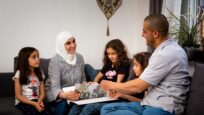
Resettlement to Sweden provides lifeline for Syrian family
26.08.2021After fleeing conflict and struggling to get by in Lebanon, move to Sweden offers family of five the chance to resume their careers and education.
-
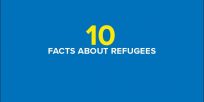
10 Facts About Refugees
19.08.2021UNHCR, the UN Refugee Agency, provides you with 10 important facts on refugees – for a fact-based discussion.
-
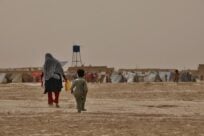
UNHCR warns Afghanistan’s conflict taking the heaviest toll on displaced women and children
13.08.2021This is a summary of what was said by UNHCR spokesperson Shabia Mantoo – to whom quoted text may be attributed – at today’s press briefing at the Palais des Nations in Geneva.
-

Survivors of sexual and gender-based violence in DRC receive Norwegian support
11.08.2021With support from Norway, UNHCR provides vocational training and psychosocial support to survivors of sexual and gender-based violence in the Democratic Republic of the Congo.
-
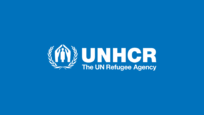
UNHCR urges states to protect refugees’ rights, not to instrumentalize their plight
27.07.2021UNHCR is concerned by the instrumentalization of refugees and migrants by states apparently to achieve political ends.
-
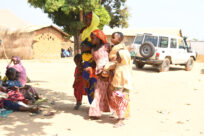
Early unearmarked funding from Sweden makes a difference throughout the year
07.07.2021Sweden’s early unearmarked funding allows UNHCR to help refugees from the Central African Republic who are hosted in Cameroon – one of the agency’s chronically underfunded programs.
-
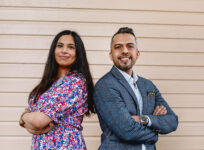
Refugees of the Year 2021 announced in Finland
22.06.2021Finnish Refugee Council has chosen Sara Al Husaini, a student from Espoo, as the Refugee Woman of the year 2021. The Refugee Man of the year 2021 is Ahmed Mesaedy from Tampere.
-

Football and fika co-organized by refugees in Sweden marks World Refugee Day
21.06.2021In the 30 degree heat, Faridah Luanda, 23, rushed around the football pitch and accommodation centre in northern Stockholm to make sure everything was in order to celebrate this year’s World Refugee Day. “This day is very important in our lives,” Faridah explained. “I celebrate the strength and courage of […]
-
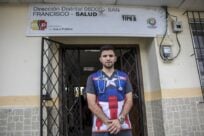
UN High Commissioner for Refugees Filippo Grandi’s message on World Refugee Day
19.06.2021Two days ago, we announced that an unprecedented number of people have been forced to flee their homes. More than 82.4 million men, women and children have had their worlds turned upside down by war, violence and persecution. While the rest of us spent much of the last year at […]
-
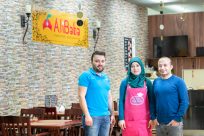
UNHCR: Despite some remaining challenges, refugees still optimistic about their future in the Baltic countries
09.06.2021Estonia, Latvia and Lithuania are countries where refugees can thrive, not just survive. UNHCR survey reveals willingness of refugees to start a new life and integrate in the society, but also remaining challenges.
